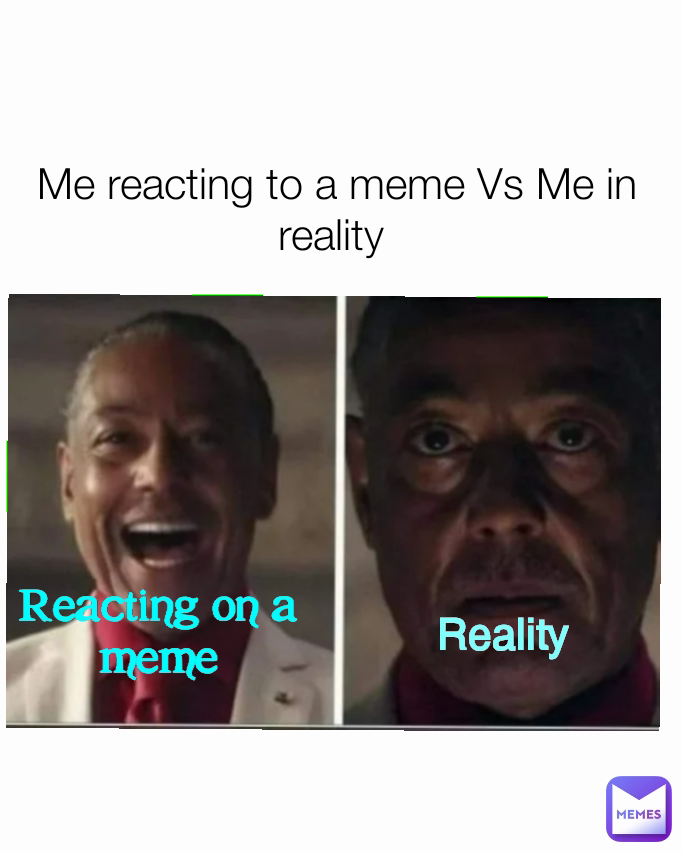Reacting To Me Lying: How To Navigate The Complexities Of Deception
Deception is a part of human interaction, and reacting to someone lying can be a delicate matter. Whether it's a small white lie or a more significant betrayal, knowing how to respond effectively is essential for maintaining trust and healthy relationships. Understanding the psychology behind lying and the best ways to address dishonesty can help you navigate these challenging situations with grace and wisdom.
Reacting to me lying requires emotional intelligence and a deep understanding of human behavior. Lies can create rifts in relationships, but they can also be opportunities for growth and deeper connection if handled correctly. Learning how to confront dishonesty and rebuild trust is a skill that can benefit every aspect of your life.
In this article, we will explore the intricacies of reacting to lies, the psychological reasons behind dishonesty, and strategies for addressing deceit constructively. By the end of this guide, you will have a comprehensive understanding of how to handle situations where someone is dishonest, ensuring that you maintain healthy relationships while fostering personal growth.
Read also:Donatella Den Nyc A Trendsetting Fashion Brand Redefining Style In The Big Apple
Understanding the Psychology of Lying
Lying is a complex behavior that stems from various psychological factors. To effectively react to someone lying, it’s crucial to understand the motivations behind deceit. Research suggests that people lie for numerous reasons, including fear, self-preservation, and social acceptance.
According to a study published in the Journal of Personality and Social Psychology, individuals are more likely to lie when they feel threatened or pressured. Understanding these underlying causes can help you approach the situation with empathy rather than anger or frustration.
Why People Lie
People lie for a variety of reasons, and these motivations can vary depending on the context. Below are some common reasons why individuals resort to dishonesty:
- Self-Protection: People often lie to avoid punishment or embarrassment.
- Social Approval: Some individuals lie to gain acceptance or approval from others.
- Manipulation: Lies can be used to control or manipulate others for personal gain.
- Escape Responsibility: Dishonesty can be a way to shirk responsibility or avoid accountability.
Recognizing the Signs of Deception
Reacting to me lying starts with identifying the signs of deception. While no single behavior guarantees dishonesty, certain cues can indicate that someone is not being truthful. These non-verbal and verbal signals can help you detect lies more effectively.
Research conducted by the Harvard Business Review highlights several common indicators of deception, such as inconsistent stories, avoidance of eye contact, and nervous body language. Being aware of these signs can empower you to address dishonesty more confidently.
Non-Verbal Cues of Deception
Non-verbal communication plays a significant role in detecting lies. Here are some key body language indicators to watch for:
Read also:Ashlee X A Rising Star In The World Of Entertainment
- Eye Contact: Avoidance or excessive eye contact can signal discomfort or dishonesty.
- Facial Expressions: Microexpressions, such as fleeting smiles or frowns, can reveal hidden emotions.
- Body Posture: Closed-off or tense body language may indicate deception.
How to React When Someone Lies to You
Reacting to me lying involves a delicate balance of emotions and logic. Your response should be measured and thoughtful, focusing on resolving the issue rather than escalating it. Here are some strategies for addressing dishonesty effectively:
First, it’s important to remain calm and composed. Reacting with anger or aggression can exacerbate the situation and damage the relationship further. Instead, approach the conversation with an open mind and a willingness to listen.
Steps to Address Dishonesty
When you suspect someone is lying, follow these steps to handle the situation constructively:
- Confront the Issue Calmly: Address the lie in a non-confrontational manner, focusing on the behavior rather than the person.
- Ask Open-Ended Questions: Encourage the individual to explain their actions by asking questions that require detailed responses.
- Listen Actively: Pay attention to their explanation and try to understand their perspective.
- Set Boundaries: Clearly communicate your expectations for honesty and trust in the relationship.
The Impact of Lies on Relationships
Reacting to me lying can have a profound impact on relationships. Dishonesty can erode trust and create emotional distance between individuals. However, addressing lies openly and constructively can lead to stronger, more resilient relationships.
Research from the Journal of Family Psychology suggests that couples who address dishonesty with empathy and understanding are more likely to rebuild trust and improve their relationships. By focusing on communication and mutual respect, you can overcome the challenges posed by deceit.
Rebuilding Trust After Deception
Rebuilding trust after someone has lied requires effort and commitment from both parties. Here are some strategies for restoring trust in a relationship:
- Forgiveness: Let go of resentment and focus on moving forward.
- Consistent Honesty: Demonstrate honesty and transparency in all interactions.
- Open Communication: Encourage regular, honest conversations to rebuild trust.
Reacting to Lies in Professional Settings
In professional environments, reacting to me lying can be particularly challenging. Workplace dishonesty can undermine team dynamics and affect productivity. Addressing lies in a professional setting requires tact and professionalism.
According to a study by the International Journal of Human Resource Management, employees who handle workplace dishonesty with integrity and fairness are more likely to maintain positive working relationships. By focusing on problem-solving rather than blame, you can address dishonesty in a constructive manner.
Strategies for Handling Workplace Dishonesty
Here are some strategies for addressing dishonesty in a professional setting:
- Document Evidence: Keep a record of any instances of dishonesty to support your case.
- Engage in Mediation: Consider involving a neutral third party to mediate the situation.
- Focus on Solutions: Work collaboratively to resolve the issue and prevent future occurrences.
The Role of Emotional Intelligence in Reacting to Lies
Emotional intelligence plays a critical role in reacting to me lying. Individuals with high emotional intelligence are better equipped to handle dishonesty with empathy and understanding. They can regulate their emotions and respond to lies in a way that fosters constructive dialogue.
A study published in the Journal of Organizational Behavior highlights the importance of emotional intelligence in conflict resolution. By developing your emotional intelligence, you can improve your ability to address dishonesty effectively and maintain healthy relationships.
Developing Emotional Intelligence
Here are some tips for enhancing your emotional intelligence:
- Practice Self-Awareness: Reflect on your emotions and how they influence your behavior.
- Improve Empathy: Try to understand the perspectives and feelings of others.
- Enhance Social Skills: Develop effective communication and conflict resolution skills.
The Long-Term Effects of Dishonesty
Reacting to me lying can have lasting effects on personal and professional relationships. Chronic dishonesty can lead to emotional distress, decreased trust, and damaged reputations. However, addressing lies constructively can lead to personal growth and improved relationships.
Research from the Journal of Applied Psychology suggests that individuals who address dishonesty with empathy and understanding are more likely to experience positive outcomes in their relationships. By focusing on growth and improvement, you can turn difficult situations into opportunities for personal development.
Turning Lies into Opportunities for Growth
Here are some ways to transform dishonesty into opportunities for personal growth:
- Reflect on the Situation: Analyze the reasons behind the lie and what it reveals about the relationship.
- Set Boundaries: Establish clear expectations for honesty and trust in the future.
- Focus on Improvement: Work together to improve communication and build stronger relationships.
Conclusion: Navigating the Complexities of Dishonesty
Reacting to me lying is a complex process that requires emotional intelligence, empathy, and a commitment to constructive dialogue. By understanding the psychology behind dishonesty and developing effective strategies for addressing lies, you can navigate these challenging situations with grace and wisdom.
Remember, dishonesty doesn’t have to destroy relationships. With the right approach, you can turn difficult situations into opportunities for growth and improvement. We encourage you to share your thoughts and experiences in the comments below and explore other articles on our site for more insights into personal and professional development.
Wasmo Somali 2025: A Comprehensive Guide To The Future Of Somali Fashion And Culture
Austin Swift's Wedding: A Comprehensive Guide To The Grand Celebration
PBM Yuri: A Comprehensive Guide To Understanding And Mastering Performance-Based Marketing Yuri

Reacting To Me Lying Know Your Meme

Reacting to me lying... views iFunny

Reacting on a meme Me reacting to a meme Vs Me in reality Reality